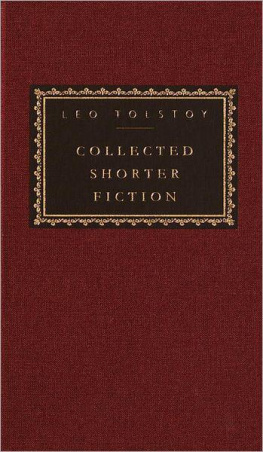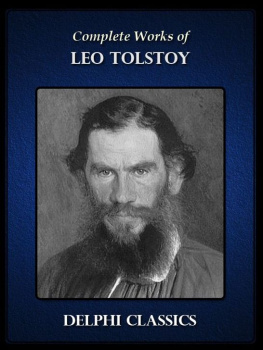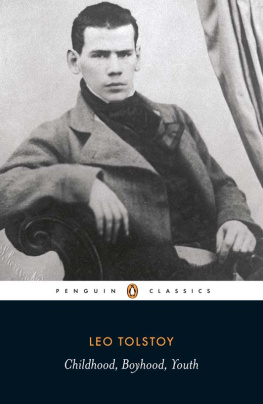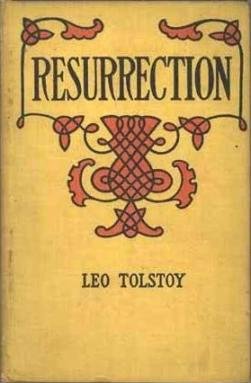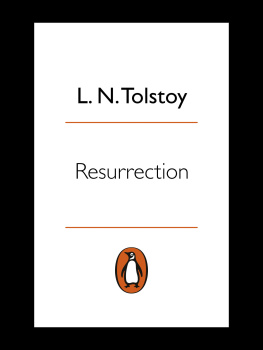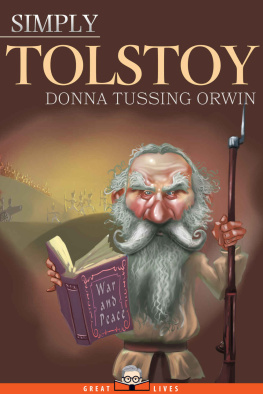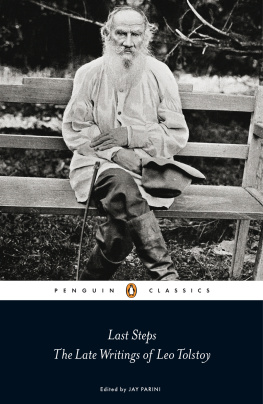WHAT TO DO?
* * *
LEO TOLSTOY
Translated by
ISABEL FLORENCE HAPGOOD
*
What to Do?
First published in 1887
ISBN 978-1-62012-056-9
Duke Classics
2012 Duke Classics and its licensors. All rights reserved.
While every effort has been used to ensure the accuracy and reliability of the information contained in this edition, Duke Classics does not assume liability or responsibility for any errors or omissions in this book. Duke Classics does not accept responsibility for loss suffered as a result of reliance upon the accuracy or currency of information contained in this book.
Contents
*
Translator's Note
*
Books which are prohibited by the Russian Censor are not alwaysinaccessible. An enterprising publishing-house in Geneva makes aspecialty of supplying the natural craving of man for forbidden fruit,under which heading some of Count L. N. Tolstoi's essays belong. Theseessays circulate in Russia in manuscript; and it is from one of thesemanuscripts, which fell into the hands of the Geneva firm, that the firsthalf of the present translation has been made. It is thus that theCensor's omissions have been noted, even in cases where such omissionsare in no way indicated in the twelfth volume of Count Tolstoi'scollected works, published in Moscow. As an interesting detail in thisconnection, I may mention that this twelfth volume contains all that thecensor allows of "My Religion," amounting to a very much abridged scrapof Chapter X. in the last-named volume as known to the public outside ofRussia. The last half of the present book has not been published by theGeneva house, and omissions cannot be marked.
ISABEL F. HAPGOOD
BOSTON, Sept. 1, 1887
Article on the Census in Moscow
*
1882
The object of a census is scientific. A census is a sociologicalinvestigation. And the object of the science of sociology is thehappiness of the people. This science and its methods differ sharplyfrom all other sciences.
Its peculiarity lies in this, that sociological investigations are notconducted by learned men in their cabinets, observatories andlaboratories, but by two thousand people from the community. A secondpeculiarity is this, that the investigations of other sciences are notconducted on living people, but here living people are the subjects. Athird peculiarity is, that the aim of every other science is simplyknowledge, while here it is the good of the people. One man mayinvestigate a nebula, but for the investigation of Moscow, two thousandpersons are necessary. The object of the study of nebulae is merely thatwe may know about nebulae; the object of the study of inhabitants is thatsociological laws may be deduced, and that, on the foundation of theselaws, a better life for the people may be established. It makes nodifference to the nebula whether it is studied or not, and it has waitedlong, and is ready to wait a great while longer; but it is not a matterof indifference to the inhabitants of Moscow, especially to thoseunfortunates who constitute the most interesting subjects of the scienceof sociology.
The census-taker enters a night lodging-house; in the basement he finds aman dying of hunger, and he politely inquires his profession, his name,his native place, the character of his occupation, and after a littlehesitation as to whether he is to be entered in the list as alive, hewrites him in and goes his way.
And thus will the two thousand young men proceed. This is not as itshould be.
Science does its work, and the community, summoned in the persons ofthese two thousand young men to aid science, must do its work. Astatistician drawing his deductions from figures may feel indifferenttowards people, but we census-takers, who see these people and who haveno scientific prepossessions, cannot conduct ourselves towards them in aninhuman manner. Science fulfils its task, and its work is for itsobjects and in the distant future, both useful and necessary to us. Formen of science, we can calmly say, that in 1882 there were so manybeggars, so many prostitutes, and so many uncared-for children. Sciencemay say this with composure and with pride, because it knows that theconfirmation of this fact conduces to the elucidation of the laws ofsociology, and that the elucidation of the laws of sociology leads to abetter constitution of society. But what if we, the unscientific people,say: "You are perishing in vice, you are dying of hunger, you are piningaway, and killing each other; so do not grieve about this; when you shallhave all perished, and hundreds of thousands more like you, then,possibly, science may be able to arrange everything in an excellentmanner." For men of science, the census has its interest; and for usalso, it possesses an interest of a wholly different significance. Theinterest and significance of the census for the community lie in this,that it furnishes it with a mirror into which, willy nilly, the wholecommunity, and each one of us, gaze.
The figures and deductions will be the mirror. It is possible to refrainfrom reading them, as it is possible to turn away from the looking-glass.It is possible to glance cursorily at both figures and mirror, and it isalso possible to scrutinize them narrowly. To go about in connectionwith the census as thousands of people are now about to do, is toscrutinize one's self closely in the mirror.
What does this census, that is about to be made, mean for us people ofMoscow, who are not men of science? It means two things. In the firstplace, this, that we may learn with certainty, that among us tens ofthousands who live in ease, there dwell tens of thousands of people wholack bread, clothing and shelter; in the second place, this, that ourbrothers and sons will go and view this and will calmly set downaccording to the schedules, how many have died of hunger and cold.
And both these things are very bad.
All cry out upon the instability of our social organization, about theexceptional situation, about revolutionary tendencies. Where lies theroot of all this? To what do the revolutionists point? To poverty, toinequality in the distribution of wealth. To what do the conservativespoint? To the decline in moral principle. If the opinion of therevolutionists is correct, what must be done? Poverty and the inequalityof wealth must be lessened. How is this to be effected? The rich mustshare with the poor. If the opinion of the conservatives is correct,that the whole evil arises from the decline in moral principle, what canbe more immoral and vicious than the consciously indifferent survey ofpopular sufferings, with the sole object of cataloguing them? What mustbe done? To the census we must add the work of affectionate intercourseof the idle and cultivated rich, with the oppressed and unenlightenedpoor.
Science will do its work, let us perform ours also. Let us do this. Inthe first place, let all of us who are occupied with the census,superintendents and census-takers, make it perfectly clear to ourselveswhat we are to investigate and why. It is the people, and the object isthat they may be happy. Whatever may be one's view of life, every onewill agree that there is nothing more important than human life, and thatthere is no more weighty task than to remove the obstacles to thedevelopment of this life, and to assist it.
This idea, that the relations of men to poverty are at the foundation ofall popular suffering, is expressed in the Gospels with strikingharshness, but at the same time, with decision and clearness for all.


